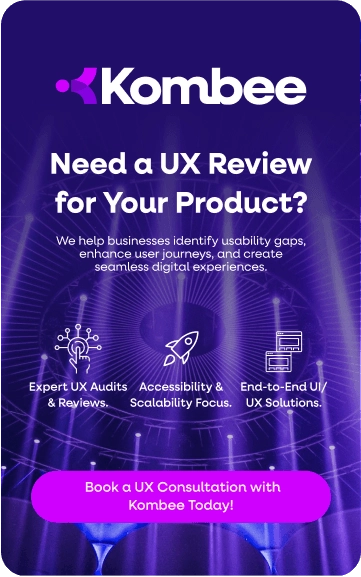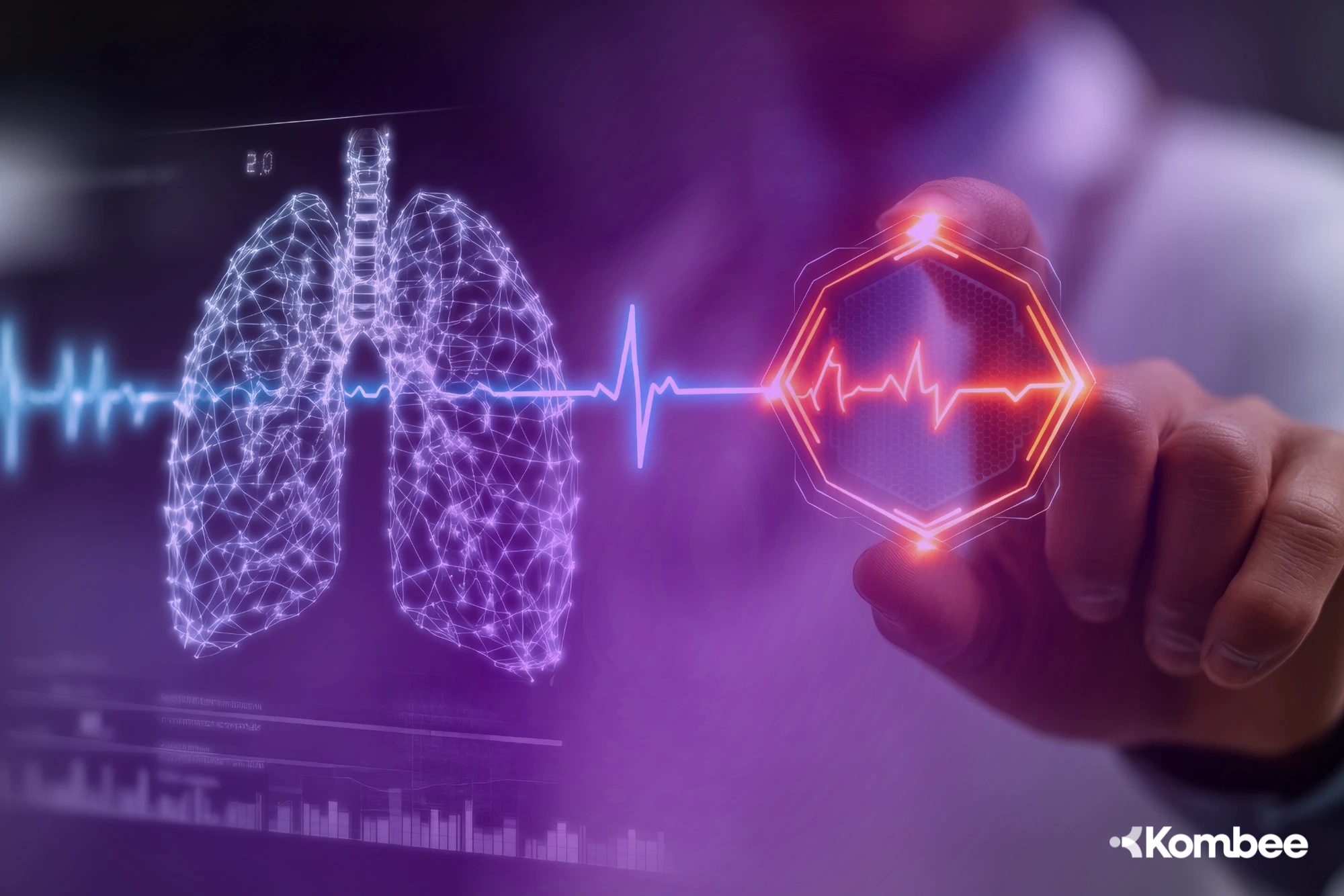Introduction
Have you ever wondered why some online stores seem to know exactly what you want before you even click “add to cart”? That’s not magic but AI in e-commerce at work. AI has evolved from a helpful add-on to the very engine powering smarter, faster and more profitable websites.
Consider this: the AI powered e-commerce tools market is expected to approach $17 billion by 2030. Mid-sized merchants are increasingly adopting AI tools for e-commerce like predictive analytics and dynamic pricing engines. If you’re not utilizing AI solutions for e-commerce you’re leaving growth and revenue on the table. In this blog we’ll explore how AI in e-commerce can boost sales and efficiency.
Understanding AI-Powered Web Development
AI web development is all about using artificial intelligence technologies like machine learning, natural language processing, predictive analytics and generative AI, to simplify and enhance web design and coding. Instead of relying solely on manual coding, AI allows websites to build themselves, optimize themselves and even interact with users intelligently.
Think of it as having a virtual web development team working 24/7, but smarter, faster and more precise. It’s the perfect combination of creativity and automation.

AI tools for business automation are designed to learn patterns and make decisions autonomously. They can generate code, create design layouts and even suggest improvements to boost user engagement. For example:
- Creation: AI generates wireframes, page layouts and even front-end code automatically.
- Optimization: It tracks user behavior and SEO performance, adjusting content and site structure in real-time.
- Interaction: AI enhances user experience through conversational interfaces, adaptive UI and predictive personalization.
By integrating AI and automation into web development, businesses can launch smarter websites faster and more efficiently than ever.
Read More: Want to ensure your web and mobile apps succeed? Check out our blog, ‘The Secret to Building Robust Web and Mobile Apps with the Right Development Team’.
The Role of AI in Mobile App Development

AI mobile app development is transforming every stage of the app lifecycle. Let’s break it down:
1. Discovery and Planning
In traditional app development, planning relied heavily on guesswork and past experience. With AI for mobile app design, predictive analytics tools can forecast user needs, assess market trends and even suggest features that will engage your audience the most.
Imagine creating an AI design app that can analyze millions of user interactions from previous apps and tell you what works. That’s the power of AI in mobile applications, it makes your planning smarter, faster and more accurate.
2. Prototyping and Design
AI design app tools like Uizard and Figma AI are game-changers. They can generate wireframes and prototypes automatically based on simple text prompts or sketches. Designers no longer need to spend hours creating multiple versions of the same interface.
AI for mobile app design also helps with:
- Predictive UX modeling: suggesting layouts that improve retention.
- Accessibility improvements: ensuring apps are usable for all audiences.
- Micro-interaction optimization: refining small UI details for better engagement.
By using AI mobile app development tools at this stage, you save time and create more effective designs that resonate with your audience.
3. Backend Development and AI Integration
The backend is where AI really shines. Developers can train machine learning models on user data to enable features like personalized recommendations, fraud detection or predictive maintenance. AI for mobile app design ensures these models integrate seamlessly with the app, making the experience smooth and responsive.
Examples include:
- Fitness apps predicting fatigue and adjusting workouts.
- E-commerce apps recommending products based on browsing habits.
- Banking apps identifying unusual transactions in real time.
Read More: Want to avoid costly mistakes when building your app? Check out our blog, ‘Stop Wasting Money! Here’s How to Choose the Best Mobile App Development Company’.
Why AI Powered E-Commerce Matters
Think of AI as the brain of your online store. With AI powered e-commerce systems, your website can learn, adapt and optimize itself in real time. These tools handle everything from product recommendations to pricing, fulfillment and customer interactions. The result? A website that doesn’t just display products but sells more and smarter and also faster.

So, how can you utilise AI solutions for e-commerce to boost your business?
Automating Your Store: From Manual to Autonomous
The first step is using AI tools for e-commerce to automate repetitive tasks:
- Workflow Automation: AI writes product descriptions as well as creates marketing content and also even schedules posts based on trends.
- Fulfillment Optimization: Predictive models anticipate demand so products reach customers faster thus cutting shipping delays.
- Conversational Shopping: Voice assistants as well as chatbots guide customers thereby turning questions into sales.
By adopting AI powered e-commerce tools you free up time to focus on strategy while your website handles routine operations seamlessly.
Personalization That Converts
Generic shopping experiences don’t cut it anymore. AI takes personalization to the next level:
- Dynamic Recommendations: AI analyzes browsing patterns and micro interactions to suggest products in real time.
- Adaptive Interfaces: Homepages as well as banners and also product layouts adjust automatically based on user intent.
- Emotional Intelligence: Sentiment analysis detects hesitation and triggers reassurance messages to help customers complete purchases.
These benefits of artificial intelligence in e-commerce aren’t just theoretical instead they actively improve engagement as well as conversions and customer satisfaction.
Read More: Curious about boosting repeat sales with AI? Check out our blog, ‘How to Use AI to Personalise Shopping Experiences and Increase Repeat Sales’.
Optimizing Conversions with AI
Conversion Rate Optimization is a key area where AI solutions for e-commerce shine. AI continuously tests:
- Product page copy
- Call-to-action buttons
- Page layouts
This means your website doesn’t just react to shoppers but instead anticipates their behavior. By implementing AI tools for e-commerce you can turn more browsers into buyers without manual trial and error.
Smarter Pricing and Merchandising
Dynamic pricing and merchandising are now handled intelligently by AI:
- Adaptive Pricing: AI adjusts prices based on demand as well as competition and purchasing patterns.
- Generative Merchandising: Product bundles, seasonal promotions and also even featured items are optimized automatically.
- Eco-Friendly Recommendations: AI can even suggest packaging and shipping options that reduce waste.
Using the best AI tools for e-commerce in pricing ensures you stay competitive and profitable.
AI for Website Performance and SEO
AI doesn’t just optimize what users see it also improves how your site performs:
- Speed Optimization: AI identifies heavy scripts and images and compresses them for faster load times.
- SEO Enhancements: Content is optimized to rank in AI powered search results and handle conversational queries.
- Semantic Enrichment: Product descriptions become machine-readable thus improving discoverability.
Implementing these AI powered e-commerce tools can make your website faster as well as more visible and more likely to convert visitors into loyal customers.
Conversational Commerce and Customer Support
Modern chatbots are more than just support, they actively drive sales:
- Context Persistence: AI can remember user interactions across devices.
- Voice Payment Integration: Customers can complete purchases via voice commands.
- Generative Customer Experience: AI drafts empathetic responses based on sentiment thus reducing complaints and improving loyalty.
The right AI tools for e-commerce turn support into a growth channel not just a problem-solving function.
Logistics and Supply Chain Intelligence
AI can also streamline the backend of your e-commerce business:
- Predictive Stock Management: Anticipates demand to prevent overstock or shortages.
- Smart Fulfillment Routing: Identifies the most efficient shipping paths.
- Autonomous Warehouse Tools: Robots monitor inventory and reduce human error.
These benefits of artificial intelligence in e-commerce save time, cut costs and also keep operations running smoothly.
How to Use AI in E-Commerce Effectively
If you are wondering how to use AI in e-commerce then start small and scale gradually:
- Choose the right AI tools for e-commerce: Look for solutions that fit your store’s size and needs.
- Automate repetitive tasks: Free up your team to focus on growth.
- Focus on personalization: Use AI to recommend products and optimize layouts.
- Test and optimize continuously: Let AI handle CRO as well as pricing and also merchandising adjustments.
- Track impact: Monitor conversions as well as sales and customer satisfaction to ensure AI is delivering results.
With the best AI tools for e-commerce even smaller stores can operate like large-scale retailers.
Read More: Interested in how AI is transforming businesses beyond e-commerce? Check out our blog, ‘The Power of AI in Tech Business: Transforming Operations, Decision-Making, and Customer Experiences’.
Conclusion
The future of e-commerce isn’t just traffic, it’s cognitive adaptability. AI in e-commerce helps websites learn, optimize and sell better than manual processes. The right AI solutions for e-commerce turn every interaction into an opportunity. With AI powered e-commerce and AI tools for e-commerce, you can enjoy the benefits of artificial intelligence in e-commerce and learn how to use AI in e-commerce to boost sales, engagement and loyalty. The best AI tools for e-commerce are your competitive edge. At Kombee, we transform websites into powerful systems built to perform, scale and grow with your business.
Frequently Asked Questions
1. Which AI is best for eCommerce?
The best AI for e-commerce depends on your goals. Tools like Shopify Magic, Kombee’s custom AI integrations and predictive analytics platforms excel in personalization, dynamic pricing and conversion optimization. Choose based on features, scalability and ease of integration with your existing store.
2. How is AI used in an e-commerce website?
AI powers personalized recommendations, dynamic pricing, chatbots, predictive inventory and automated marketing. It analyzes user behavior, predicts demand and optimizes UX, turning browsers into buyers while improving efficiency and customer satisfaction.
3. Can AI increase sales for small to mid-sized stores?
Yes. AI tools for e-commerce help small and mid-sized stores predict trends, personalize shopping, automate marketing and optimize pricing. This increases conversions, average order value and customer retention without requiring large teams.





